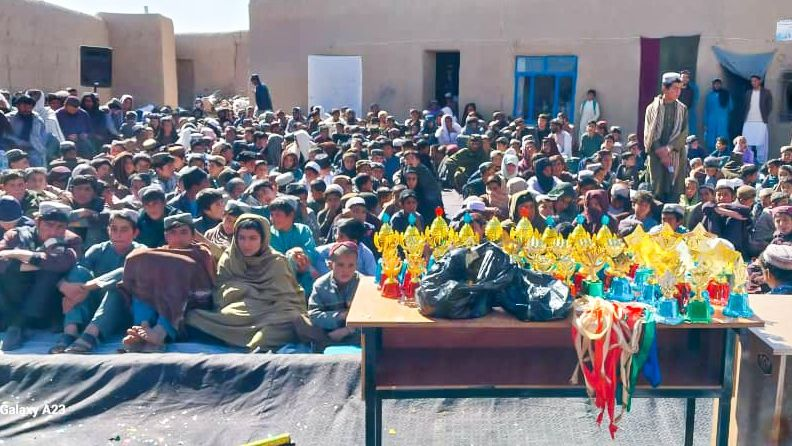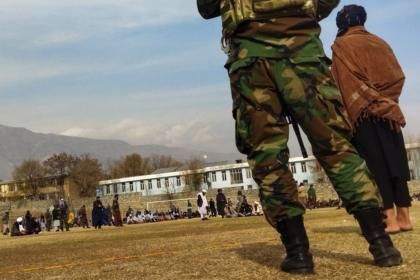RASC News Agency: Sources within the Department of Education in Kandahar have disclosed that the Taliban administration plans to conduct a province-wide examination in the coming days to evaluate students’ religious knowledge. Under this directive, pupils who fail to achieve satisfactory scores will be expelled from formal schools and transferred to religious seminaries (madrassas), further blurring the already fragile boundary between education and indoctrination in Taliban-controlled Afghanistan.
According to education officials, the policy applies to all grade levels including children as young as those in the first and second grades. Even girls’ schools, which remain under severe restrictions, are required to hold similar exams up to the sixth grade. The plan was reportedly endorsed by the Kandahar Council of Ulema, a conservative clerical body whose growing influence now supersedes that of professional educators.
At a recent meeting, the council ordered the immediate implementation of the exams, and school principals have already received both written instructions and telephone directives to ensure full compliance. Teachers say the initiative has been imposed without consultation, describing it as a “religious purge” of the formal education system.
Many parents in Kandahar have reacted with fear and anger, warning that the Taliban’s policy could strip their children of the opportunity to receive modern, scientific education.
“If our sons and daughters are removed from formal schools and confined to madrassas, what future will they have?” one parent asked. “Afghanistan does not need more clerics it needs doctors, engineers, and teachers.”
Families accuse the Taliban of exploiting religion as a political tool to consolidate power. They argue that if the regime genuinely sought to promote Islamic understanding, it would employ qualified religious scholars within the existing education system rather than dismantling it altogether.
This is not an isolated incident. Similar religious proficiency tests have recently been introduced across Afghanistani universities and government offices a sign of the Taliban’s broader campaign to enforce ideological conformity and eliminate secular thought.
Meanwhile, the Taliban’s Ministry of Education has announced plans to establish at least ten new madrassas in every district, while credible reports indicate that numerous public schools have already been converted into religious institutions. Teachers who resist these transformations face intimidation, dismissal, or arrest.
Educational experts warn that this policy represents a deliberate attempt to erase Afghanistan’s fragile progress toward modern education, replacing it with rigid indoctrination rooted in extremism. Analysts say this could have devastating consequences deepening illiteracy, inflaming sectarian tensions, and perpetuating the cycle of violence that has crippled the nation for decades.
A recent study by the Afghanistan Human Rights Center reveals that Taliban-controlled “Jihadi Schools” are exerting a dangerous psychological influence on young Afghanistanis. These institutions, the report states, glorify martyrdom, suppress critical thinking, and cultivate hostility toward diversity, democracy, and gender equality.
The report warns that such education systems are not producing scholars, but radicalized youth conditioned for ideological servitude a trend that threatens not only Afghanistani society but regional and global stability as well.
Observers argue that the Taliban’s new exam policy is part of a calculated effort to weaponize religion as a tool of political control. By diverting students from science and civic education into rigid religious instruction, the regime aims to create a generation incapable of questioning authority.
This approach mirrors historical strategies used by authoritarian movements worldwide: dismantle critical education, silence intellectuals, and mold young minds into loyal instruments of ideology.
In the absence of international oversight and domestic resistance, the Taliban’s educational restructuring risks transforming Afghanistan into a closed theocracy where independent thought, innovation, and progress are treated as acts of defiance.
The upcoming religious exams in Kandahar are not merely an academic measure; they mark another step in the Taliban’s broader agenda to erase intellectual freedom and impose a monolithic ideology on Afghanistani society. What the regime describes as “religious reform” is, in essence, an attempt to suffocate modern education and replace a generation of learners with a generation of followers.
As one Kandahari teacher, speaking anonymously, put it:
“They fear education because an educated child can ask questions. A madrassa-trained child will only repeat answers.”






